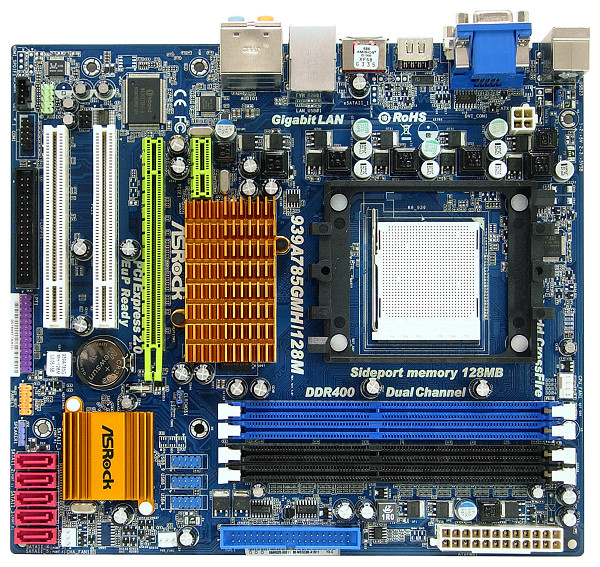This is just AMD copying Intel and locking out overclocking as they do on their 'B' series chipsets. Hasn't that been one of AMDs bigger marketing points that their chips are unlocked in contrast to Intel?
It's hardly copying when one can still OC AMD CPU on three chipsets and Intel's only on Z boards.
Many are buying intel over AMD just because of thunderbolt and here is AMD half-*ssing the closest thing they have (USB4).
Its a pain to root for them when they keep doing nonsense actions like this.
Perhaps you could update half-*ssed knowledge of USB4 controller's spec?
ASM4242 USB4 chip supports much faster PCIe data transfer than Thunderbolt 4. ASM4242 supports PCIe 4.0 and TB4 PCIe 3.0. Speeds on ASM4242 reach 40 Gbps for PCIe data whereas on TB4 it's ~27 Gbps, after overhead.
Which is disappointing for one more reason: there won't be a Gen 5 chipset link in this generation.
Nobody needs one now. Even Thunderbolt 5 does not support PCIe Gen5.
The chipsets for AM5 platform was the biggest let down. And AMD is yet doubling down on "bullsh*tery", instead of adressing the issues. The entire point of the AM5 platform becomes moot with such "decisions". And if motherboards on 600 series often is priced the same as literally two years later, the 800 series not only is not adding any value, or fixing the atrocious motherboard choice, but is doing completely opposite. Good luck buying the same old garbage P21 for new increased prices. Disgusting.
We are so sorry to have not met your expectations. Please receive sincere apologies from entire planet. Yours sincerely, human race.
What exactly do you need that is TB4 specific which USB4 can't do?
He needs knowledge of the chip's spec in the first palce, and some humility, so that the post does not come across as ignorant arogance.
There are AM5 motherboards with TB4 controllers built in as well.
Indeed, mostly from Asrock and Asus.
A couple of AM4 boards even have TB3 certification from Intel.
Even double Thunderbolt 4 ports, such as on Asus B550 ProArt.
Yes, Thunderbolt has a networking layer that Intel didn't give to the USB-IF as well as VT-d based DMA protection, but that's the only real advantages.
This also works as USB4NET or USB4 P2P on USB4. In Windows 11, a network driver is automatically assigned when two PCs are connected and the file transfer speed is the same as on TB, so 10 Gbps in each direction. Not sure about Windows 10 though.
Universal Serial Bus 4 (USB4™) interdomain connections
learn.microsoft.com
The only thing I don't like is the chipset link is still PCIE 4.0 and not 5.0
Gen5 chipset link will be expensive. And such chipset does not even exist at the moment.
Personally I don't really think there is any hard pressure to choose the 800 series over the 600 series.
Nothing new aside the USB4 and the Wifi7.
- faster memory and faster EXPO profile for those who need it
- faster video ports from onboard graphics, as Gigabyte's leak shows that iGPU on 9000 CPUs supports DP 2.1 at its full speed 80 Gbps.
- more boards will feature internal HDMI/DP port for another display attached to PC case
- we might finally get the first board featuring front USB4 port with 40 Gbps as ASM4242 chip supports two USB-C ports.
I agree there is no pressure. Improvements are simply incremental as the platform has matured now.
Does the IF 2400 speed apply if you put a Zen 5 chip in a 600 series board?
Each 600 board would need to roll out a seperate BIOS update for this to appear as an option.
So if a motherboard manufacturer decides to opt-in on Gen5-M.2 "from CPU" and USB4 with the B850 chipset, it automatically becomes an X870? Or what would the difference between B650 and X870 be in that case? Is it either Gen5-M.2 or UBS4 to "identify" as B850?
If a board has both Gen5 NVMe drive and USB4, it is X870 board. There is no "opt-in". It's segmented by default.












